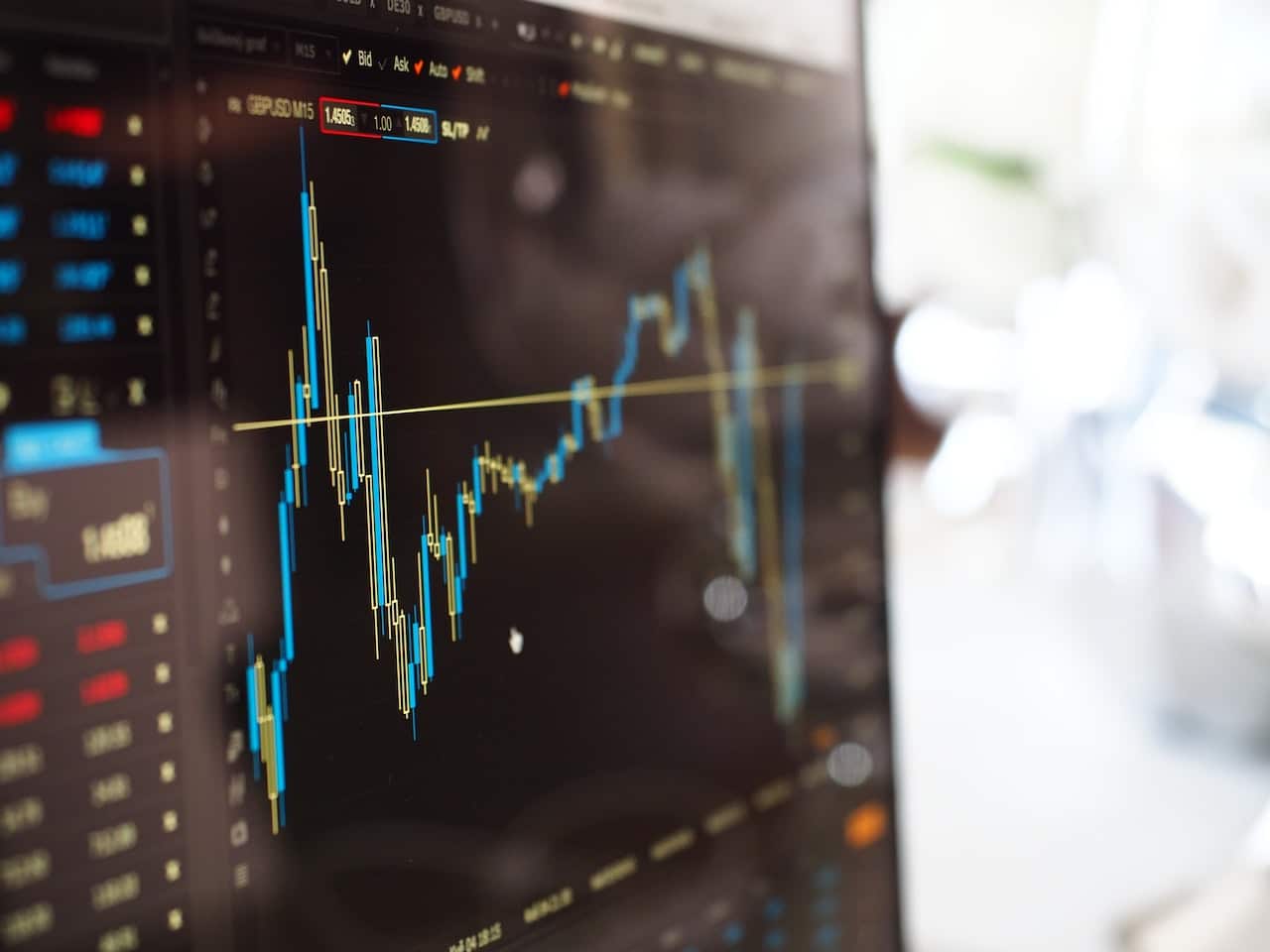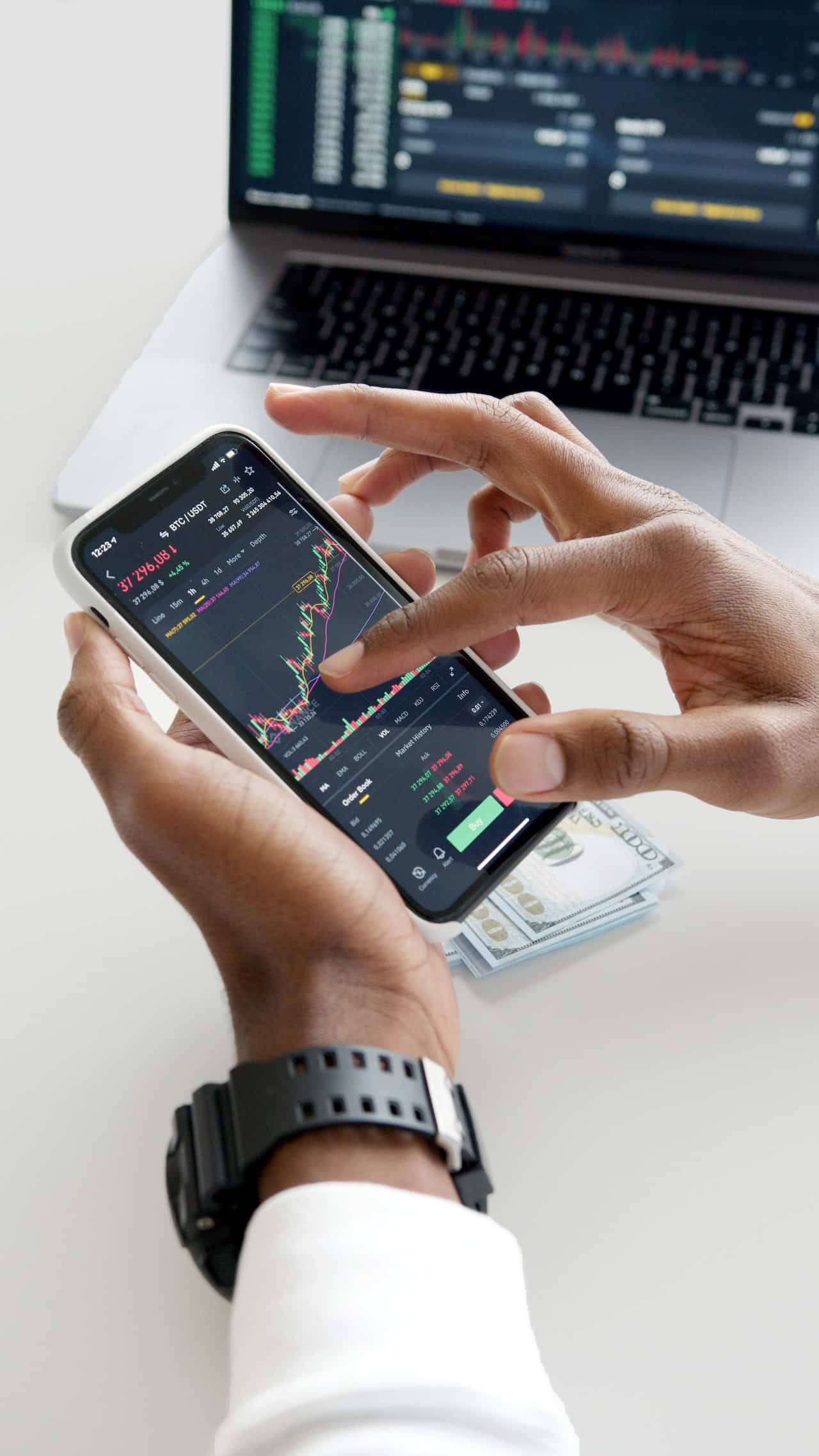Derivatives, like Futures and CFDs, are used for speculative trading. Whilst many people associate Futures with things like trading commodities, there’s a very vibrant market out there of Crypto derivative trading.
For example, Plus500 Futures Trading is comprehensive, with the ability to trade Futures from many asset types, such as stocks, indexes, Commodities, and even Crypto.
We often see similar brokers trading CFDs. These are similar to Futures, but CFD trading of crypto is prohibited in the US, which is why we are looking at Futures specifically. There are other differences too. A Future is an agreement to legally buy (or sell) an underlying asset in the future, at a given price. A CFD, whilst also speculating on the future price of an underlying asset, is not a legal agreement to actually own it per so.
So, you can think of CFDs as a bet, whilst a Future is a legal contract. Ultimately, they’re used in very similar ways because most Futures are sold on (traded many times) before their purchase date.
IMAGE: PEXELS
5 Reasons To Trade Crypto Futures
Below are 5 things to consider when looking at Futures over owning the crypto itself. However, it needs to be clear that there are certain risks associated with Futures that will be explored toward the end of the article. Profits are not guaranteed, risks are high, and it is not a strategy for beginner investors.
Reason 1: Leverage
The core reason why anyone trades with speculative products like Futures and CFDs is because of the leverage they bring. Because you’re essentially buying and selling without ever owning the asset, brokers give you leverage opportunities.
A leveraged trade allows traders to control a larger position size than their actual investment. This amplifies both profits and losses, but many traders with low starting capital view it as opening up opportunities.
The same logic applies to crypto. Futures allow you to gain more exposure and a larger position than simply buying the coin itself.
Reason 2: Short Positions
Furthermore, it’s possible to actually sell the derivative for a future price, or simply take a short position. This means you’re betting on the price of the coin to fall, which precisely doubles the number of trading opportunities to the trader. You’re not just looking to speculate on good news, but also bad.
Some traders feel they are more accurate with their speculations on shorting than they are with long positions. This is something that would be impossible with crypto if not for derivatives.
Reason 3: Lower Barrier To Entry
Because of the leverage, derivatives like Futures can be traded at a smaller initial investment, meaning the barrier to entry is lower. However, there are other reasons too.
Crypto has a different kind of barrier to entry: the technology. Having to store the asset requires a bit of time and thought, and potential risks of its own. You’re hoping the exchange you use accepts your request to sign up, you hope they do not go bankrupt (if they’re holding your coin), or you’re storing the coins on hardware, which isn’t particularly efficient time-wise.
Crypto derivative trading eliminates all of this, as you simply use a broker the same way you do with stock trading.
Reason 4: Hedging And Diversification
The hedging and diversification capability that Crypto Futures bring is desired by many traders. Firstly, the use of short positions can help hedge against potential losses on your existing crypto portfolio. Or, you may find negative correlations with other assets that you want to explore. The flexibility provided by derivatives makes them easy to diversify your portfolio and cover different positions.
Reason 5: Faster Trades
Finally, some traders care a lot about timing – particularly those using technical analysis. For them, crypto Futures provide an advantage in that they can execute a trade on an exchange pretty quickly.
The process is more likely to be automated with a broker and doesn’t involve processing bank transfers. What may take longer is the process of buying and selling crypto on an exchange, even if it’s a liquid currency. Furthermore, there may be less risk of being left holding the bag in a position that you no longer want to be in.
The Downsides Of Crypto Derivatives
For as many potential rewards of using crypto Futures or CFDs, there are an equal amount of risks. This is poetically true, in that leveraged positions pertain to the adage of the high-risk high-reward relationship.
However, there are other downsides too, such as not ever owning the asset. Whilst this may not matter with equity, it’s important with crypto because it’s often safer, and in spirit with their philosophy of decentralized ownership.
There’s also a level of complexity with Futures, and there’s already enough complexity within crypto as it is. It’s a volatile asset with a difficulty in understanding its technology, so Futures add another layer of risk and complexity. This is no strategy for a beginner. Plus you run into your own counterparty risks of whether the broker can fulfill their obligations, as well as incurring fees because of the leveraged position.
Disclaimer: The above references an opinion of the author and is for information purposes only. It is not intended to be investment advice. Seek a duly licensed professional for investment advice. Invest responsibly and never invest more than you can afford to lose.
IMAGE: PEXELS
If you are interested in even more business-related articles and information from us here at Bit Rebels, then we have a lot to choose from.


COMMENTS